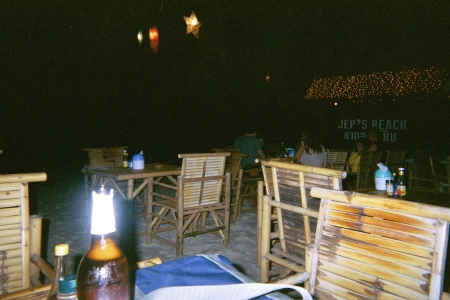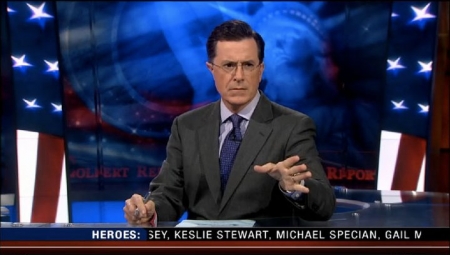On Tuesday, August 30 the National Clean Energy Summit was held in Las Vegas, Nevada. The second panel of the afternoon was on “Achieving energy security and independence through collaboration and competition” and featured:
- Deputy Under Secretary of Defense, Dorothy Robyn
- Executive Secretary Treasurer of the Nevada State AFL-CIO, Danny L. Thompson
- Chairman of the Federal Energy Regulatory Commission (FERC), Jon Wellinghoff
- Chairman and CEO of Caesars Entertainment Corporation, Gary Loveman.
The panel was moderated by Kate Gordon, Vice President for Energy Policy at the Center for American Progress. The full video of the panel discussion may be viewed here. The following is a summary (only a loose transcript) of the panel discussion.
Achieving energy security and independence through collaboration and competition
Dorothy Robyn (DOD): For the Department of Defense, reducing consumption is a life-saving mission for our convoys in Afghanistan. We spend $4 billion per year to power our installations. Also, our domestic installations are increasingly important for executing remote operations. Electricity disruptions can be dangerous. Since DOD is so large, we represent a huge demand coupled with a history of innovation and leadership. Because efficiency and renewables are in our national interests, we will move in that direction.
Danny Thompson (AFL-CIO): In Nevada, we have long sought to diversify our economy. Construction, operation, and maintenance of solar, wind, and geothermal energy facilities is quite attractive to us.
Jon Wellinghoff (FERC): To move our power grid into the future, we need adequate transmission capability from those remote locations where the energy is being
produced. We’re installing rules to promote competition in the transmission market.
Kate Gordon: What are the concerns about grid security?
Jon Wellinghoff (FERC): There are some. We’re looking for overall security of the grid and are in conversations with Congress about this.
Kate Gordon: Tell me how business fits into all of this.
Gary Loveman (Caesars): We find that our employees at Caesars value the goal of building better buildings with higher efficiency. We all care about recycling and purchasing food from the right sources. I’m also on the board of FedEx and we’d love to completely electrify our fleet.
Kate Gordon: We’ve talked a lot about electric vehicles at today’s conference. How would an influx of these vehicles affect the grid?
Jon Wellinghoff (FERC): Studies have shown that we have sufficient reserve capacity for 70% of our fleet to be converted to electric vehicles if they charge during off-peak hours. We think with proper information, consumers are very capable of making decisions about when to use electricity. Right now, that information doesn’t exist.
Gary Loveman (Caesars): It seems whenever renewable energy starts to gain momentum, economic vitality rises and demand for it decreases. We’d like to plan our projects without those cycles.
Kate Gordon: (from the audience) Can we actually compete on a global scale without a lot of subsidies and tax credits?
Dorothy Robyn (DOD): Probably not. DOD has shown that new technologies don’t just pop out of the private sector (e.g. semiconductors, aviation). There’s often heavy government R&D, procurement contracts, etc. to jumpstart consumer markets. Often we don’t have to develop these technologies ourselves, but rather act as a catalyst for development. We’re big enough that we can assume the risk of being an early adopter. By contrast, consumer building efficiency improvements are a fragmented market which makes their procurement difficult.
Jon Wellinghoff (FERC): Keep in mind that all energy was subsidized at some point. Gas plants are all rooted in aircraft engines procured by the military. The Transcontinental Railroad was subsidized by Lincoln. It’s in our history and, in fact, essential to making these industries competitive.
Kate Gordon: And we see that as the technologies become mature across the world, those subsidies tend to be rolled back, US fossil fuel subsidies aside.
Danny Thompson (AFL-CIO): I agree that the military will help bring renewable prices down. I also think we must be able to compete internationally with labor and environmental standards.
Kate Gordon: How do fluctuating energy costs affect your business, Gary?
Gary Loveman (Caesars): We first try to find ways to reduce costs. Convention hall lights are always on. Hotel rooms have the AC cranked too low. All these things add up. Green energy just isn’t close to economical right now. If it gets close, we’d do it even at a little loss for the overall benefit of it. The difference can’t be first-order, though. It must be modest.
Natural gas makes the problem even more difficult. Oil is more expensive, but gas is less expensive than people expected.
Jon Wellinghoff (FERC): Natural gas is the same price everywhere, but electricity isn’t, nor is it uniformly easy to procure.
Danny Thompson (AFL-CIO): I agree with Gary that it’s an issue of price.
Kate Gordon: What do you say to the criticism that the green jobs aren’t really here?
Danny Thompson (AFL-CIO): They are here. They’re here in geothermal and many other fields, but they are real.
Kate Gordon: It’s great to hear what’s possible within DOD, in business, and elsewhere. Thanks!


